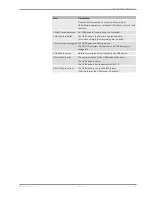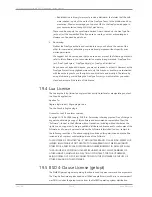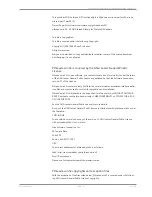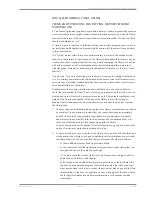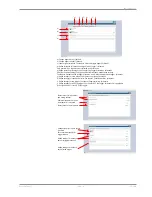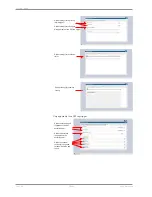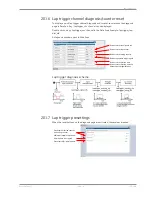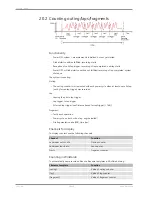
Open Source Software (OSS) Declaration for the Display | 19
Bosch Motorsport
DDU 10
151 / 188
It was fully intended that pthreads-win32 be usable with commercial software not covered
by either the GPL or the LGPL licenses. Pthreads-win32 has many contributors to it's code
base, many of whom have done so because they have used the library in commercial or
proprietry software projects.
Releasing pthreads-win32 under the LGPL ensures that the library can be used widely,
while at the same time ensures that bug fixes and improvements to the pthreads-win32
code itself is returned to benefit all current and future users of the library.
Although pthreads-win32 makes it possible for applications that use POSIX threads to be
ported to Win32 platforms, the broader goal of the project is to encourage the use of
open standards, and in particular, to make it just a little easier for developers writing
Win32 applications to consider widening the potential market for their products.
19.9 GNU LESSER GENERAL PUBLIC LICENSE
Version 2.1, February 1999
Copyright (C) 1991, 1999 Free Software Foundation, Inc.
59 Temple Place, Suite 330, Boston, MA 02111-1307 USA
Everyone is permitted to copy and distribute verbatim copies
of this license document, but changing it is not allowed.
[This is the first released version of the Lesser GPL. It also counts
as the successor of the GNU Library Public License, version 2, hence
the version number 2.1.]
Preamble
The licenses for most software are designed to take away your freedom to share and
change it. By contrast, the GNU General Public Licenses are intended to guarantee your
freedom to share and change free software--to make sure the software is free for all its
users.
This license, the Lesser General Public License, applies to some specially designated soft-
ware packages--typically libraries--of the Free Software Foundation and other authors
who decide to use it. You can use it too, but we suggest you first think carefully about
whether this license or the ordinary General Public License is the better strategy to use in
any particular case, based on the explanations below.
When we speak of free software, we are referring to freedom of use, not price. Our Gen-
eral Public Licenses are designed to make sure that you have the freedom to distribute
copies of free software (and charge for this service if you wish); that you receive source
code or can get it if you want it; that you can change the software and use pieces of it in
new free programs; and that you are informed that you can do these things.
To protect your rights, we need to make restrictions that forbid distributors to deny you
these rights or to ask you to surrender these rights. These restrictions translate to certain
responsibilities for you if you distribute copies of the library or if you modify it.
For example, if you distribute copies of the library, whether gratis or for a fee, you must
give the recipients all the rights that we gave you. You must make sure that they, too, re-
ceive or can get the source code. If you link other code with the library, you must provide
complete object files to the recipients, so that they can relink them with the library after
making changes to the library and recompiling it. And you must show them these terms
so they know their rights.





